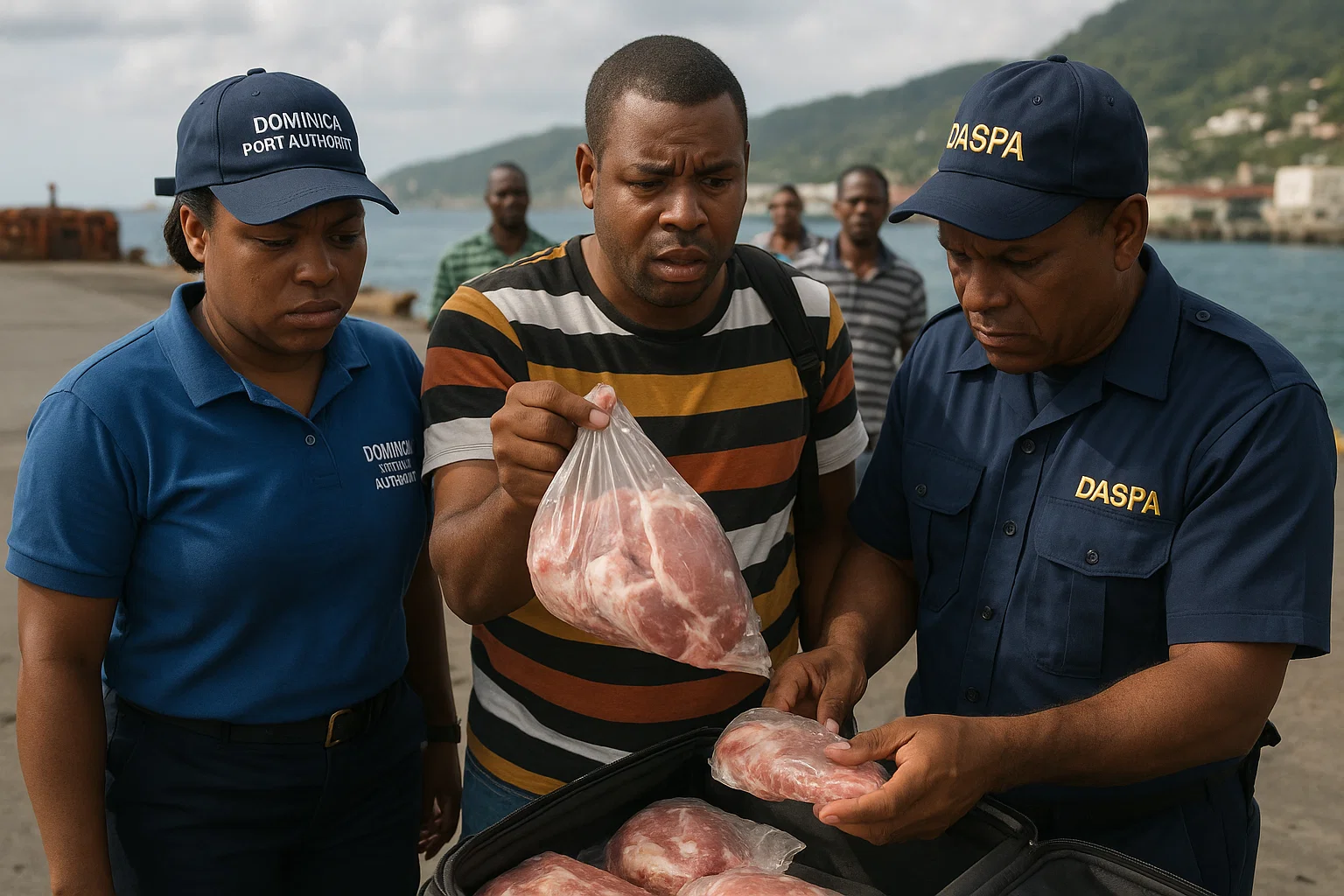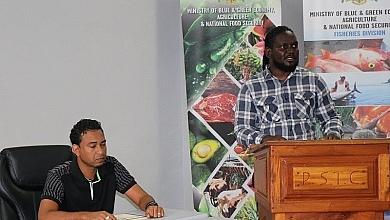Dominica Agriculture Ministry Reinforces Quarantine Rules to Protect Food Security

The Ministry of Agriculture, Fisheries, Blue and Green Economy has placed renewed emphasis on biosecurity and compliance with quarantine rules as Dominica heads into its busiest season of agricultural trade and cultural festivities.
At a press conference yesterday (October 10th, 2025),Food senior officials reminded the public that strict procedures govern the importation of fresh produce, seeds, meats, dairy products, and other agricultural commodities. The message was clear: protecting the island’s agriculture and biodiversity is as important as meeting consumer demand during the Independence and Creole Festival period.
Agriculture at the Core of National Identity
Acting Director of Agriculture Keian Alexander Stephenson stressed that agriculture remains central to Dominica’s economy and identity. With targets to raise agriculture’s GDP contribution to $700 million by 2030, Stevenson explained that vigilance at ports of entry is crucial. “Prevention is better than cure,” he said, pointing to the risks of invasive pests, plant diseases, and animal illnesses like avian flu and swine fever. Citrus, coconuts, cocoa, coffee, and cannabis were highlighted as crops under special protection, alongside pineapple, papaya, and passion fruit.
Quarantine Procedures and Public Cooperation
Acting Head of Plant Protection and Quarantine, Lynesa Ferreira, outlined the legal requirements for importers. All plant products must be accompanied by both an import permit issued in Dominica and a phytosanitary certificate from the exporting country. Consignments are inspected upon arrival, with non-compliant items confiscated and destroyed. She emphasized that imports of seeds require up to 21 working days for processing, especially if sourced from unapproved companies.
Quarantine officers stationed at the air and seaports across the island are tasked with enforcing these rules daily. Senior officer Roy Humphreys explained that confiscated goods are held in freezers and later incinerated in biosecure facilities, preventing contamination. He urged travelers and importers to declare all agricultural items honestly: “We confiscate to protect, not to steal,” he remarked, noting that shoes carrying soil and unpackaged meats are common risks.
Rules for Meats and Dairy Products
Chief Veterinarian Dr. Lennox St. Amie outlined parallel requirements for meat and dairy imports, which cover pork, poultry, beef, sheep, goat, milk, cheese, and eggs. Import permits valid for 40 days must be secured before travel. Products must remain in original sealed packaging and clearly labeled. For personal non-commercial imports, up to 40 pounds of meat is allowed per person, but undeclared or improperly packaged items face confiscation and possible fines.
Supporting Food Security During Festive Season
The ministry emphasised that these rules protect not only farmers and biodiversity but also food security during peak periods of demand. With thousands of visitors expected for Independence celebrations and the Creole Festival, officials said farmers and chefs will rely on a safe, protected agricultural system.
The ministry reminded the public that penalties are steep: undeclared agricultural products can result in fines of up to EC$10,000. Officials encouraged use of online forms via agriculture.gov.dm for faster processing, though payments remain cash-based at Vano’s House on Goodwill Road.
By reiterating these measures, the ministry aims to balance public needs with long-term protection of Dominica’s natural resources and agricultural livelihoods.
This article is copyright © 2025 DOM767








